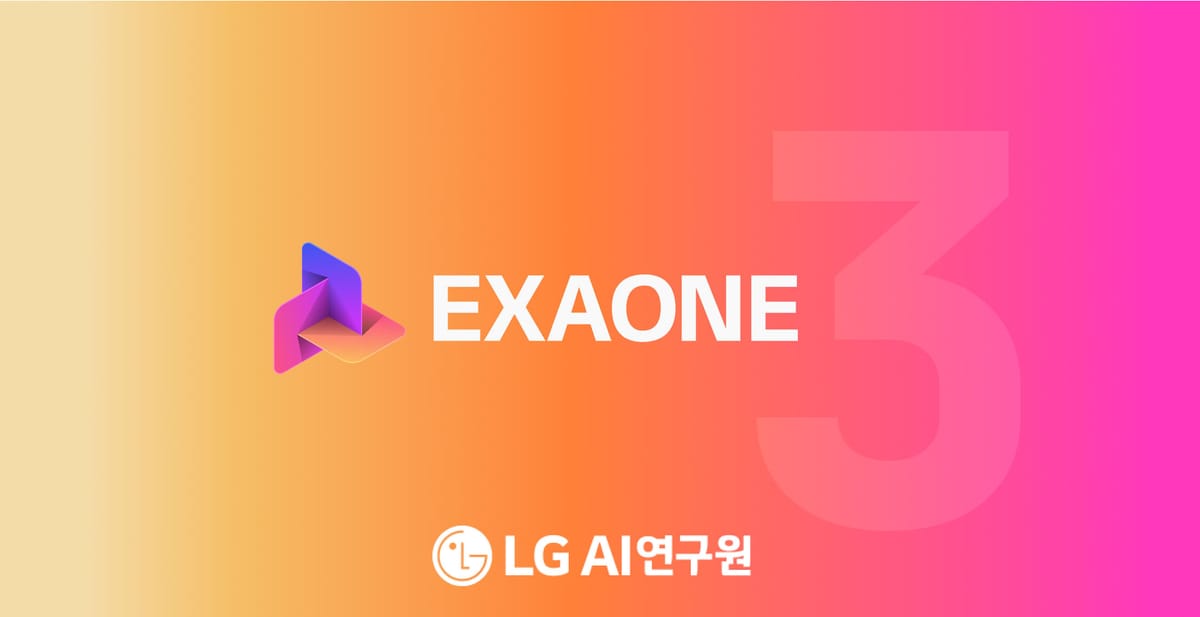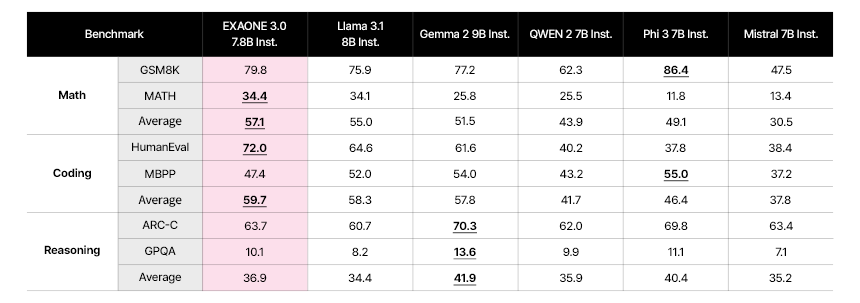
LG AI Research has unveiled EXAONE 3.0 (EXpert AI for EveryONE), marking a significant milestone as the first open-weights Korean large language model (LLM). This release aims to propel AI research and innovation in the Korean language space while offering competitive performance in English.
The EXAONE 3.0 family includes models of various sizes, but LG has chosen to open-source the 7.8B parameter instruction-tuned version for non-commercial research purposes. This model, trained on 8 trillion tokens, demonstrates strong bilingual capabilities, particularly excelling in Korean language tasks.

In benchmark tests, EXAONE 3.0 7.8B showed impressive performance across multiple categories:
- For real-world use cases in English, it achieved top scores in MT-Bench, Arena-Hard, and WildBench, outperforming other similar-sized models.
- In Korean benchmarks, it ranked first in both real-world scenarios and general language understanding tasks.
- The model also exhibited strong capabilities in math and coding tasks, often surpassing its peers.
Take a look at their technical report for more details.
Despite these achievements, the model’s release comes with a restrictive license that severely constrains its use. It only allows for non-commercial research and prohibits any commercial applications without explicit permission from LG. This stands in stark contrast to state-of-the-art open-weight models like Llama 3.1, which allow for extensive commercial uses under their licenses.
LG's CEO states that the company decided to release this model to contribute to the research ecosystem, acknowledging that it may mean forfeiting certain technical and business advantages. However, the chosen licensing approach seems at odds with this stated goal of fostering innovation and collaboration.
As the first open-weights Korean LLM, EXAONE 3.0 has the potential to accelerate AI research and development in Korea and beyond, possibly leading to breakthroughs in natural language processing for the Korean language. Yet, its restrictive licensing will ultimately hinder its widespread adoption and impact in real-world applications.
The Korean AI community would be better served by a more open approach that balances responsible development with broader accessibility. While LG’s efforts in creating an advanced Korean language model are commendable, the restrictive license undermines the spirit of open-source collaboration that has driven much of the recent progress in AI.

